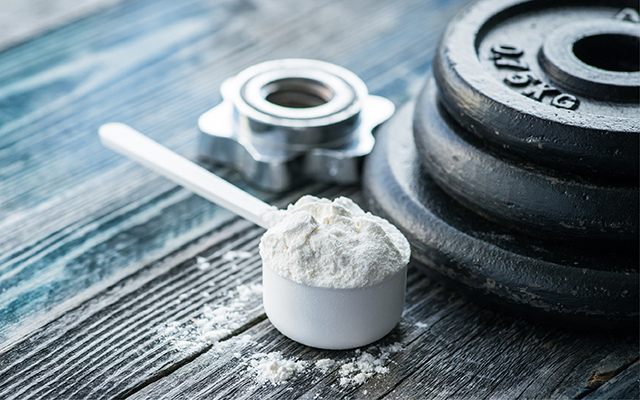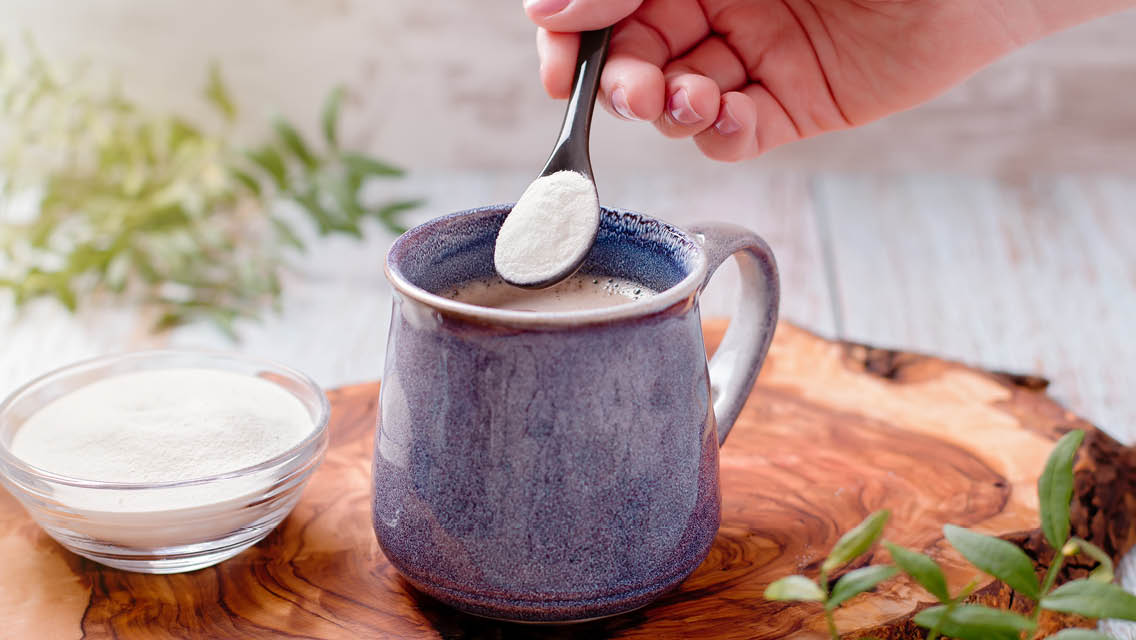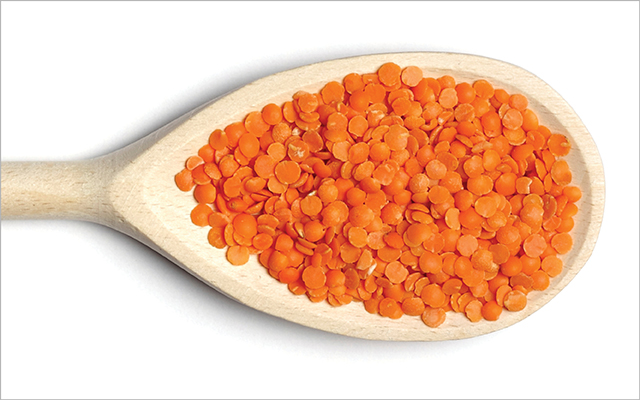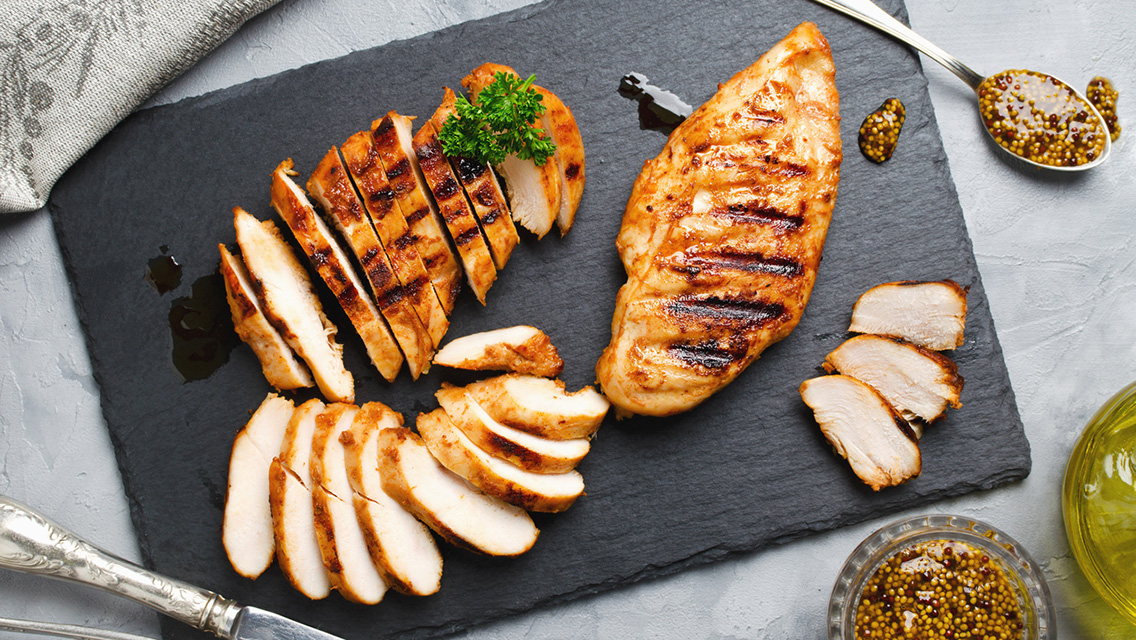Collagen is an animal-based protein supplement derived from the skin, bones, tendons, and other so-called odd bits of pork, beef, and fish. In its digestible form — obtained through a process called hydrolysis — it is referred to as gelatin.
Collagen (and its gelatin derivatives) has long been used to support hair, skin, muscle, cartilage, ligament, and blood-cell regeneration. What makes it so special is its essential amino acid profile: glycine, lysine, and proline help regulate cell growth.
“Collagen is an all-around great nutritional supplement,” says Diane Sanfilippo, BS, NC, a San Francisco–based nutritionist and author of Practical Paleo. “It’s important for joint health, tissue elasticity, and general longevity,” because of its cell-regeneration properties.
Our bodies produce collagen naturally — it’s the most abundant protein in the body, found in our connective tissues, nails, hair, and bones — but production slows as we age.
There are several ways to add collagen and gelatin to your diet — but eating more gummy bears isn’t one of them. Bone broth is a whole-foods source that you can make at home or purchase in some cafés, co-ops, and health-food stores. You can even make your own Jell-O using unflavored, unsweetened powdered gelatin.
Another option is hydrolyzed collagen, also known as collagen peptides. This is a flavorless, processed form of gelatin that allows the powder to dissolve in cold liquids. It can be found in kosher as well as pasture-raised varieties, and it’s similar in some respects to traditional protein powders — it blends well in shakes or smoothies, and it contains up to 20 grams of protein per 2 tablespoons.
Pure collagen lacks branched-chain amino acids (BCAAs), which protein powders derived from whey, egg whites, and rice and pea blends often deliver. For the average exerciser, this isn’t a big deal, says Sanfilippo. But for muscle building and postworkout recovery, BCAAs are essential. (Learn more at “Expert Answers: How BCAAs Boost Health“.)
If you’re considering using collagen powder, keep these factors in mind:
Workout intensity. “For the everyday athlete — meaning you work out once a day for no more than an hour, or no more than 20 minutes at a high intensity, and not competitively — you can definitely benefit from just adding collagen on its own,” Sanfilippo says.
If you work out harder than that, add 1 or 2 tablespoons of collagen powder to your whey-protein shake.
Dietary needs and restrictions. If you eat animal protein, you can easily incorporate collagen. If you don’t eat pork, look for beef-derived options. If you’re allergic to beef, try pork- or fish-derived collagen. If you don’t eat hooved animals, look for marine collagen peptides (a seafood-based collagen paired with a pea-protein powder is a good option for pescetarians, says Sanfilippo). If you don’t eat animal products, this is one supplement you will want to avoid.




This Post Has 0 Comments